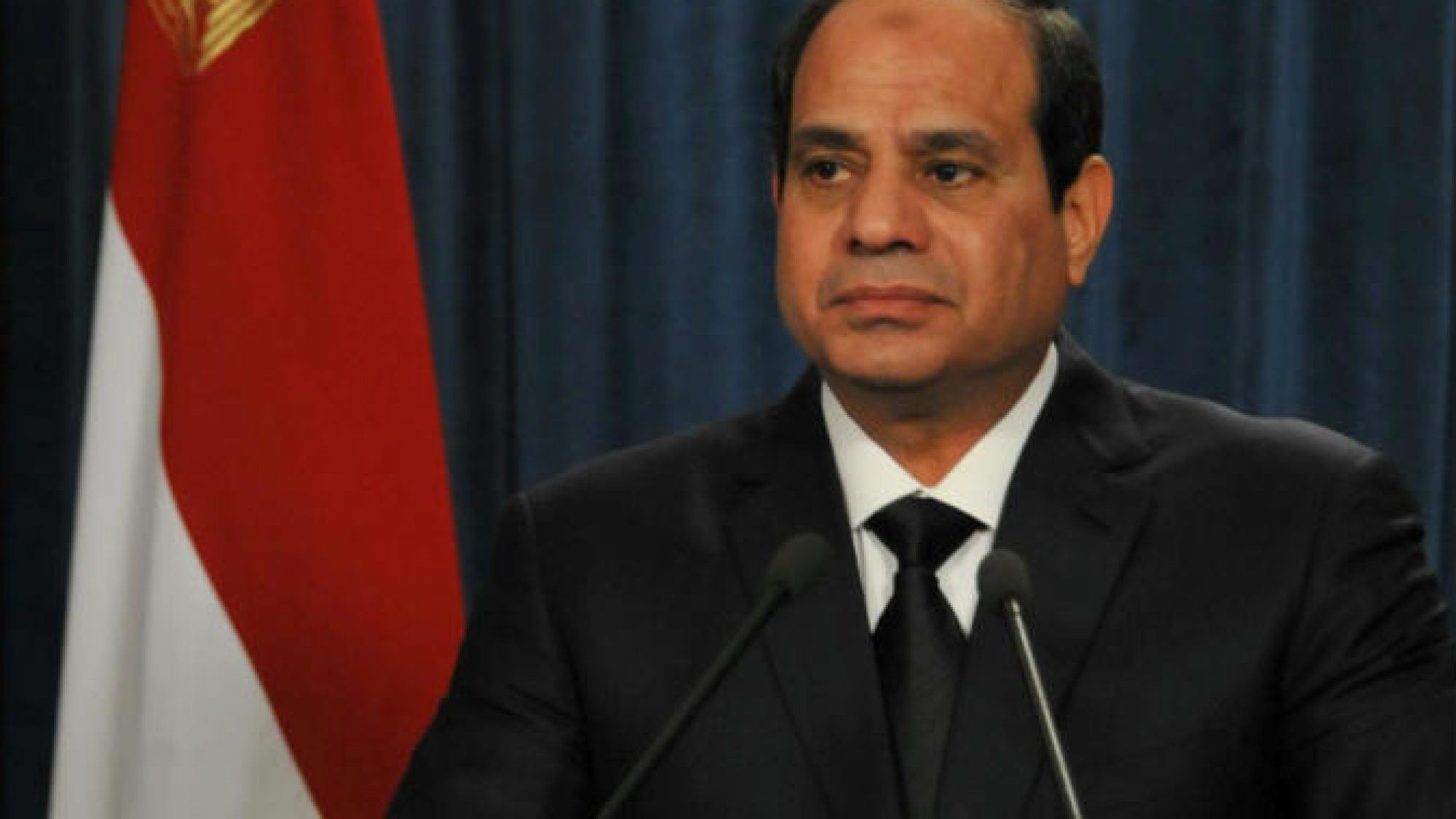
Title: Lifting the State of Emergency in Egypt – The Limitations of a Regional and International Message
The end of Egypt’s state of emergency is not a groundbreaking decision heralding a significant change in the al-Sisi regime’s attitude towards political and civil liberties. Instead, it is intended first and foremost as a regional and international message, rather than signaling substantive change for the Egyptian people. Nevertheless, this change in the discourse should be leveraged by the US administration to push for concrete reforms on a limited set of civil and political human rights.
On October 25, 2021, the president of Egypt, Abdel Fattah al-Sisi, announced in a Facebook post that he intended to lift the state of emergency that had been in effect since April 2017. In his message, he emphasized that the state of emergency is no longer needed because Egypt had become “an oasis of security and stability.”
A History of the State of Emergency
Use of states of emergency is not unique to al-Sisi’s rule nor to the unstable period after the January 2011 revolution that ousted President Hosni Mubarak. Since the establishment of the Egyptian state, they have been used as a major tool by rulers to maintain and preserve their power. For instance, following the assassination of President Anwar Sadat in 1981 a state of emergency was enacted and continuously extended every three months throughout Mubarak’s thirty-year rule.
According to the 1958 Emergency Law, a state of emergency can be declared by the president whenever public security and order are at risk, whether by war, threat of war, internal disturbance, public disaster, or the spread of an epidemic. The declaration gives the president exceptional powers to curb civil and political activities, including restricting the freedoms of assembly, movement, and speech, as well as arresting and imprisoning civilians without being subject to the provisions of the Criminal Procedure Code.
The most abusive expression of states of emergency has been the use of special courts, including the State Security Courts, which have become a tool to silence any expression of opposition to the regime, whether by Islamists or liberal forces. This abuse has made the never-ending state of emergency the subject of an ongoing struggle by local human rights organizations and political activists. One prominent example is Kefaya (Enough), an Egyptian movement for change, which was established in 2004 and focused on the removal of the state of emergency—a demand that was also voiced by the protestors during the 2011 revolution.
The State of Emergency in the Post 2011 Uprising Era
Following the 2011 uprising that toppled Mubarak, the state of emergency was lifted by the Supreme Council of the Armed Forces in May 2012 only to be enforced again for a short period by former President Mohammad Morsi, as well as the interim President Adly Mansour. A state of emergency was enacted again under al-Sisi, first in the Sinai in October 2014 and then throughout Egypt in April 2017 following terrorist attacks on Coptic churches which killed forty-seven people. Since then, the state of emergency has been extended regularly with the approval of the House of Representatives.
This restoration under al-Sisi was implemented in conjunction with unprecedented authoritarian measures, including the oppression of political opponents —including the Muslim Brotherhood’s leaders and their supporters, liberals, youth activists, journalists, and civil society—and the imposition of restrictions on the media and the freedom to criticize the regime. Taken as a whole, these measures have collectively shattered political life. In this context, al-Sisi’s termination of the state of emergency has highly symbolic significance and was celebrated by many in Egypt. Prominent politicians and high-profile figures, alongside organizations such as the Judges Club, trade unions, and even Egypt’s National Council for Human Rights, have praised al-Sisi’s decision to lift the state of emergency, describing it as an “important step toward bolstering, implementing and protecting human rights.” Similarly, local human rights activists and international organizations have welcomed the change in policy.
A Declaration for an International Audience
Despite these commendations, the abolition of the state of emergency does not herald a significant change in the al-Sisi regime’s attitude to political and civil liberties. As many commentators in Egypt have pointed out, the decision is first and foremost a regional and international message, rather than a real policy shift.
The statement of abolition, which emphasized Egypt’s stability and victory over terrorism, is intended to enhance Egypt’s international image, attract foreign investment, and respond to the international community’s criticism of Egypt’s human rights record. Specifically, this move is required to improve relations with the Biden administration, which has threatened to withhold $130 million of military assistance to encourage the Egyptian regime to improve its human rights record toward political prisoners and civil society organizations. Beyond military aid, al-Sisi also needs United States diplomatic support to re-establish Egypt’s role as a negotiator during regional disputes, and to potentially resolve a complicated water disagreement with Ethiopia regarding the Grand Renaissance Dam.
Lifting the state of emergency should be seen as part of a series of measures designed to demonstrate to the Biden administration and international community that al-Sisi is working to improve human rights. Last September, Egypt launched the National Human Rights Strategy for 2021–2026, which represents the state’s comprehensive strategy towards human rights. The fact that the strategy, ostensibly addressing a domestic issue, was formulated by the Supreme Permanent Committee for Human Rights, which was chaired by the Minister of Foreign Affairs Sameh Shoukry, reinforces that this program is aimed at an international audience rather than at actually addressing human rights violations in Egypt. Such steps also reflect at least some change in al-Sisi’s rhetoric. In past statements, he prioritized social and economic rights over civil and political rights, rejected international criticism of human rights abuses in Egypt, and attacked universalist moral preaching from European heads of state.
These fundamental perspectives, interests, and expectations were clearly on the agenda of the Egypt-US Strategic Dialogue, which was resumed after six years during a two-day meeting between Egypt’s Foreign Minister Sameh Shoukry and his counterpart, Secretary Antony Blinken, in Washington on November 8 and 9, 2021. Blinken included human rights in his opening remarks, emphasizing that “making tangible and lasting improvements in human rights is also essential to strengthening our bilateral relationship.” Shoukry, on the other hand, countered with Egypt’s considerations of stability, characterizing human rights as “an evolutionary process unique to each country, one that reflects and takes into consideration its social specificities, developmental realities, religious background, and cultural characteristics.”
What is in the Future of Human Rights in Egypt?
Despite the apparent shift in rhetoric, lifting the state of emergency does not herald a significant change in the repressive characteristics of al-Sisi’s regime, since the decision was not accompanied by a change in the recent laws that have perpetuated the same goals through other means. Any criticism of al-Sisi’s rule has been silenced through avenues like the Protests Law (2013), which places restrictions on protests and gives the Ministry of Interior excessive power to prevent and to disperse protests; the Associations Law (2017), which undermines independent NGO activity, especially human rights NGOs; and above all the Anti-Terrorism Law (2015), which legitimizes exceptional courts for dealing with terrorism-related allegations and violates the right to a fair trial. Furthermore, the amendments introduced in April 2019 to the 2014 Constitution indicate a clear intention to centralize power in the hands of the president and allow him to rule without obstruction by the judiciary.
Legislation to further restrict civil rights was implemented just a few days after the decision to abolish the state of emergency when the House of Representatives adopted amendments to a number of laws, including the Anti-Terrorism Law, the Law of Public and Vital Facilities, and the Penal Code. The amendments expanded the powers of the government and the president and subordinated civilians to the jurisdiction of the military. These amendments indicate that the logic of emergency laws continues to exist in practice. Moreover, this duality reinforces the notion that al-Sisi’s regime does not intend to expand civil and political freedoms or open up the political sphere in a way that would allow for criticism against the regime.
The Biden administration has common interests with Egypt. It wants to strengthen bilateral relations and has assigned it a significant role in the region, whether as mediator between Israel and Hamas, in the restoration of civilian-led transition government in Sudan, or in the forthcoming high-risk December elections in Libya. Considering this context, it is unrealistic to expect that the United States will substantively slow or reduce cooperation with the al-Sisi regime.
Nevertheless, although the Arab Spring highlighted the limitations of democracy promotion policy, the United States can still promote a more modest agenda. It should not abandon the goal of promoting human rights and should continue to act as a force against severe abuses of basic human rights such as the rights to life and a fair trial. In the Egyptian case, the United States should not be content with merely changing rhetoric and other empty gestures. The Biden administration must use its power to push for real changes on a concrete and limited set of issues. At the forefront of these should be the fate of dozens of political prisoners who are languishing in jail merely for criticizing the regime, in violation of their right to a fair trial.
. . .
Dr. Bosmat Yefet is a faculty member at the department of Middle Eastern Studies and Political Science in Ariel University. She is the author of The Politics of Human Right in Egypt and Jordan. She has also authored several articles focusing on various aspects of human rights, civil society, and authoritarianism in Egypt.
Image Credit: Wikimedia Commons; Ahmed abdallaa; Creative Commons Attribution-Share Alike 4.0 International
Recommended Articles

From the 1960s to the 1990s, the Danish government implemented the “Spiral Campaign,” a family planning policy that fitted four thousand and five hundred Inuit women and girls—many underage—with intrauterine…

This piece examines the UK government’s proscription of Palestine Action under the Terrorism Act, situating it within a broader trend of shrinking space for public dissent. It argues that the…

This article analyses the distortions of the International Humanitarian Law (IHL) notion of proportionality in the context of the Israel-Gaza war. It discusses Israel’s attempts to reinterpret proportionality to justify…